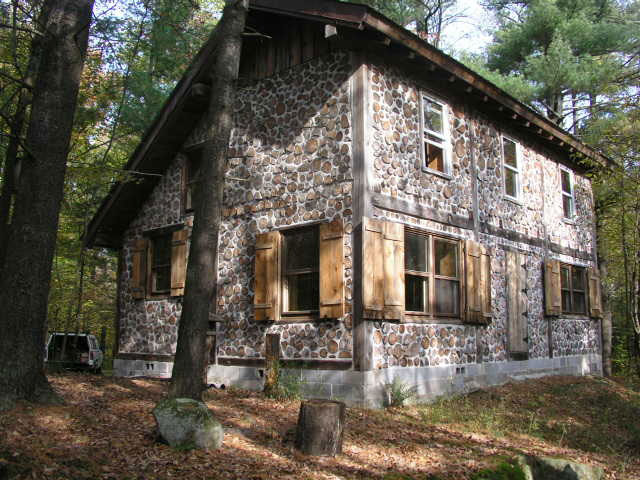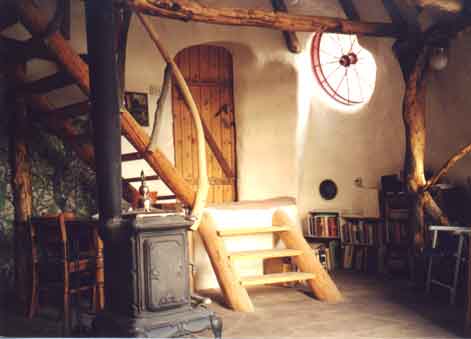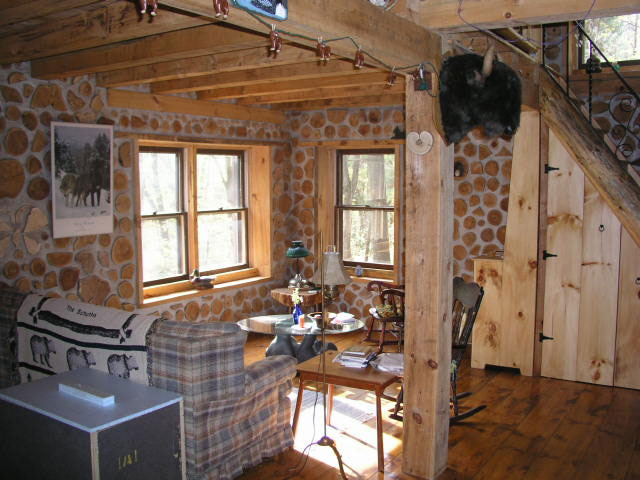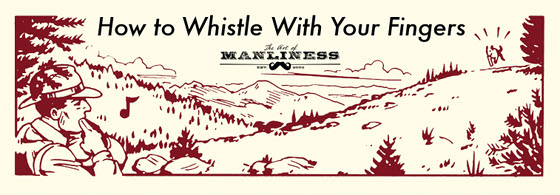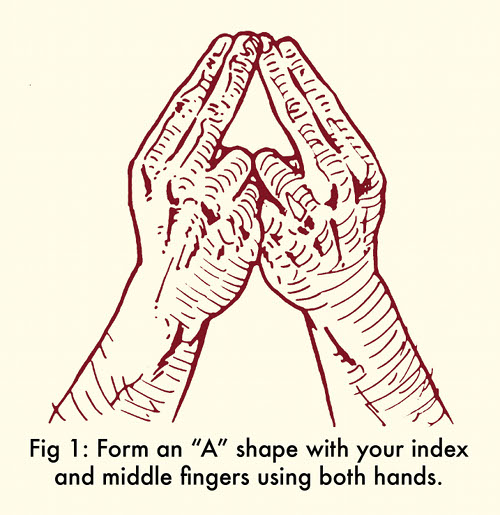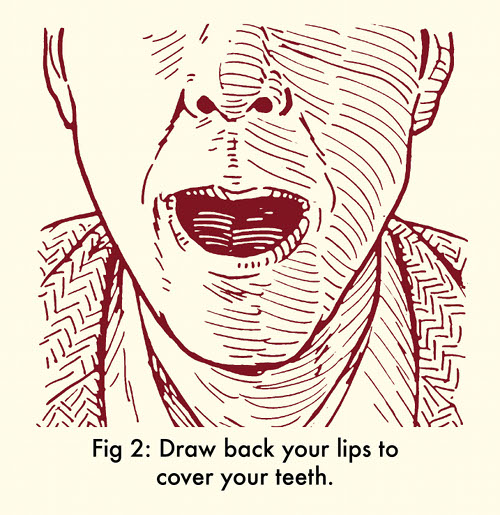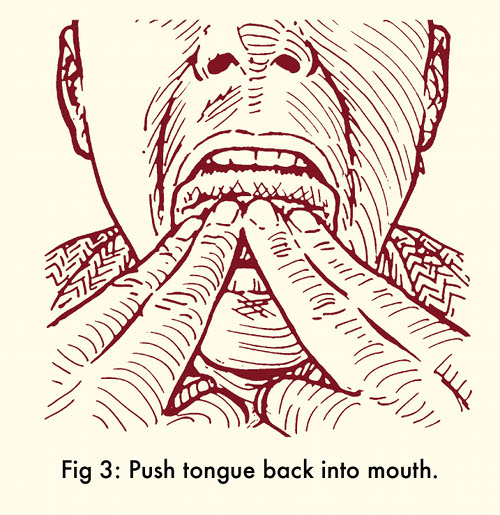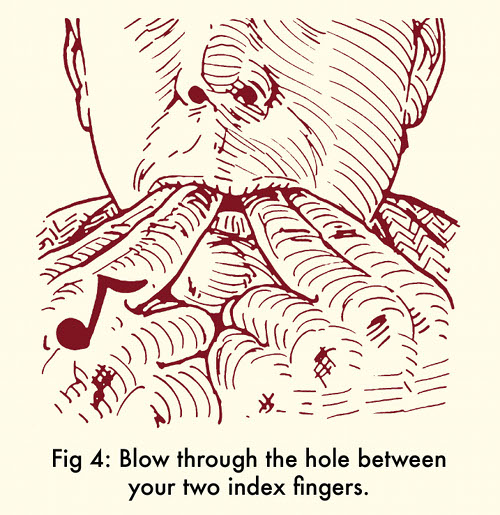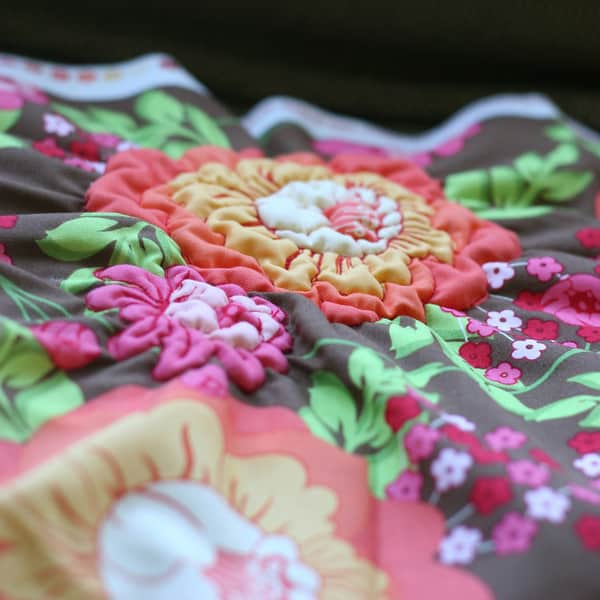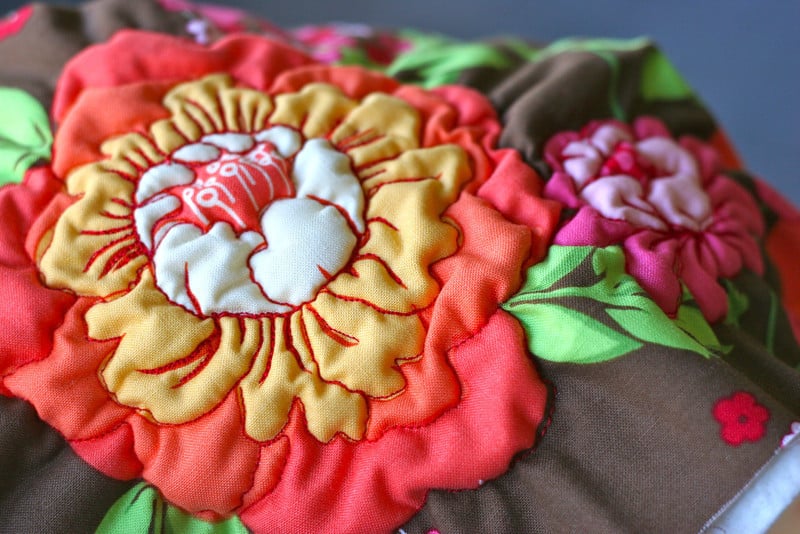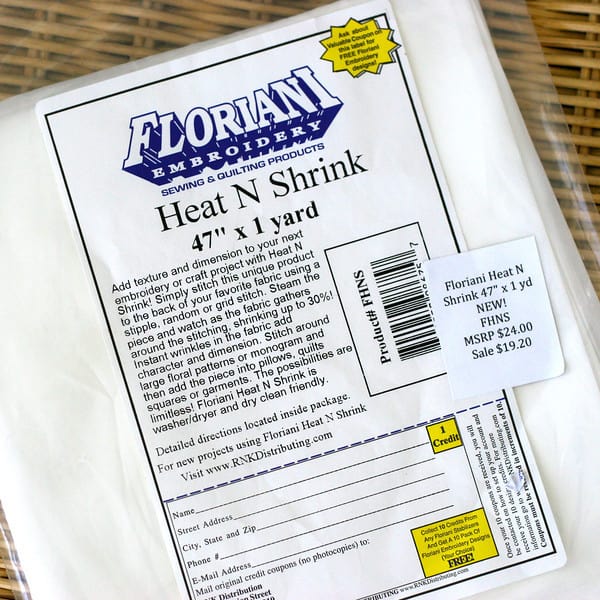I saw this on the following site:
The Art of Manliness. I have always wanted to be able to whistle with my fingers and was in awe of others who were able to do it.So when I saw these instructions, I got real excited! I have decided to try this - he says it is important to practice until you get it. I am willing to try - how about you?
Ever since I was a kid, I’ve wanted to know how to give a commanding whistle with my fingers in my mouth. You know. The kind you see people give in old movies when they’re
hailing a taxi or trying to get the peanut guy’s attention at the ballpark. It just seemed like a cool skill to have. But alas, I’ve spent my entire young and adult life frustrated that I couldn’t uncover the secret to this age old trick.
Many of you out there reading the blog feel the same way. Believe it or not, covering how to whistle with your fingers has been one of our most requested articles. Most of the emailers shared how they had a grandpa or dad who knew how to give a loud, forceful whistle with their fingers (in my case, my mom was the master of this kind of whistle). Like me, they thought it was a cool skill, but one which unfortunately hadn’t been passed onto them.
So I finally made it a goal to once and for all figure out how to whistle with my fingers, so that I could create an AoM tutorial on the subject. After just forty minutes of annoying my wife with intense practice, I finally mastered the skill that had eluded me since I was eight years old. Achievement unlocked!
Below, I show how you too can whistle with your fingers.
Choose Your Finger Combination
Your fingers do two things that allow you to create an ear-piercingly loud whistle. First, they keep your tongue pushed back, and second, they keep your lips tucked back over your teeth. The pushed back tongue and tucked lips will create a bevel which will produce a tone when you blow.
There are a myriad of finger combinations you can use to get the desired effect. I’m going to show you my two favorites.
Two-Handed, Middle/Index Finger Combo
Extend your middle and index fingers on both hands, keeping them close together, while your thumbs hold down your ring and pinky fingers.
Place your two middle fingers together, forming an “A” shape. [See Fig. 1]
I feel like I get a louder and more forceful whistle using this finger combo.
One-handed, O.K. Sign
This combo allows you to whistle with just one hand. All you need to do is form an “OK” sign with either your thumb and index finger or thumb and middle finger.
Wet and Tuck Your Lips Back Over Your Teeth
Lip placement is key. Give your lips a quick lick to wet your whistle. Tuck your lips back over your teeth. It’s what you do when you pretend you’re an old man without any teeth. Your lips need to cover your teeth in order to whistle successfully. [See Fig 2.] Feel free to adjust how much or little you tuck your lips back. It’s going to vary from person to person.
Your fingers will help keep your bottom lip tucked over your teeth.
Push Tongue Back Into Mouth With Fingers
This step is master key of successfully whistling with your fingers and also the trickiest to get right. It was for me at least.
Some people say you just need to push your tongue back in your mouth with your fingers. That advice was a bit too vague for me.
What worked for me was folding the tip of my tongue back on itself and holding it in place with my fingers, as you see in Fig. 3. Here’s how to do it with the two-handed, middle/index finger combo.
- Place the tip of your fingers underneath your tongue right at the tip.
- Push the tip of your tongue back with your fingers. You’re basically folding the first 1/4 of your tongue back on itself.
- Push your tongue back into your mouth until your first knuckle reaches your bottom lips.
Same principles apply if you’re using the one-handed, O.K. sign combo.
Again, this method worked for me. Others do it a little differently–often pushing the tongue in without really folding it over. Experiment to find what works for you.
Blow
With your fingers in your mouth, keeping the tip of your tongue folded and lips tucked back over your teeth, close your mouth around your fingers. You want to make sure you have a complete seal around your fingers.
Here’s how it should look:
Give a soft blow out your mouth. You should feel the air only go out over your bottom lip. If you feel air coming out the sides of your mouth, close your mouth tighter around your fingers. Remember, perfect seal.
Make sure you don’t see your tongue make an appearance in the hole between your fingers! It’s blocking the air from coming out.
You probably won’t get a sound right off the bat. That’s okay. Adjust your finger placement under your tongue and experiment with different finger angles and varying degrees of lip tuckage until you find the sweet spot. Experimentation is key–keep making little adjustments. You’ll know when you’re getting close to your whistle sweet spot because you’ll start producing a noise that sounds sort of like you’re blowing over a beer bottle. Start blowing more forcefully, until you get that high-pitched and loud whistle.
A word of warning: make sure to take a break between blows when you’re first starting out. I’m not kidding. If you keep blowing and blowing, you’ll just hyperventilate, make yourself feel lightheaded and dizzy, and give yourself a headache.
Practice
Keep practicing until you get it. I was able to get it down after 40 minutes of dedicated practice broken up over two days. If you’re married or live with other people, go outside or in a room to avoid driving your loved ones insane. A good time to practice is when you’re stopped at traffic lights while driving alone. Once you figure it out, you’ll wonder why it took you so long to master this awesome skill!


